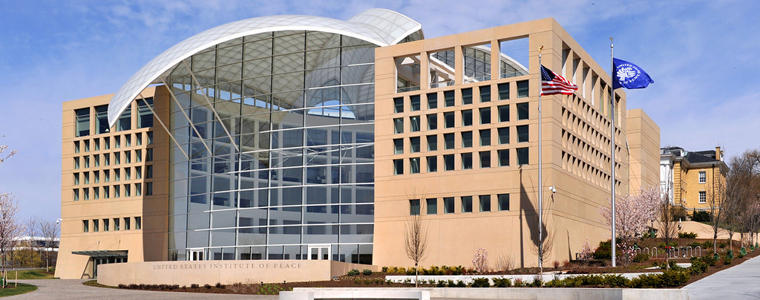Pedagogies for Peace in Post-Conflict and Fragile States
In May 2012, Education Above All, a Doha-based education group, commissioned papers from practitioners and thematic experts that map and analyze the most widely used of different curricula, collectively designated as “education for global citizenship,” and the policies that have accompanied their implementation. To explore the findings of this research, the project director, technical adviser and expert on conflict and education, Margaret Sinclair, discuss these research findings with experts from USIP and the Brookings Institution.

What kind of curricula promote the best education for long-term peace in post-conflict, fragile and low resource contexts? Many kinds of primary and secondary school curricula aim to promote social cohesion, greater tolerance and recovery from violence. But until recently we have had little research on the different benefits of various curricula in different types of conflict, or on how they can be used together most effectively, and on whether these curricular approaches need to be sequenced temporally after conflict, and if so, how.
In May 2012, Education Above All, a Doha-based education group, commissioned papers from practitioners and thematic experts that map and analyze the most widely used of these different curricula, collectively designated as “education for global citizenship,” and the policies that have accompanied their implementation. A major finding of this research project was that “transformative education for local, national and global citizenship and peace CAN be implemented even under difficult conditions if there is a policy commitment to do so.” To explore this important issue, the project director, technical adviser and expert on conflict and education, Margaret Sinclair, discussed these research findings with experts from the U.S. Institute of Peace and the Brookings Institution.
Through its Academy for Conflict Management and Peacebuilding, research by Senior Fellows, and projects supported by grants, USIP has considerable experience in the creation of citizenship, human rights, history and peace curricula, including peace curricula specifically designed for use in Muslim religious schools, or madrasas, most recently in Sudan, Iraq and Pakistan. Two USIP staff members, Lili Cole and Qamar-ul Huda, contributed essays to Education for Global Citizenship.
Pedagogies for Peace in Post-Conflict and Fragile States:
The Findings of Education Above All’s “Education for Global Citizenship” (July 2012) and a Discussion
Presenter
- Margaret Sinclair, Technical Adviser to Education Above All, Doha, Qatar
“Education for Global Citizenship in Low-Resource and Fragile Settings”
Respondents
- Jeff Helsing, Dean of Curriculum, Academy for International Conflict Management and Peacebuilding, USIP
- Xanthe Ackerman, Associate Director, Center for Universal Education, The Brookings Institution
- Qamar-ul Huda, Senior Program Officer, Religion and Peacemaking Center, USIP
Moderator
- Lili Cole, USIP



